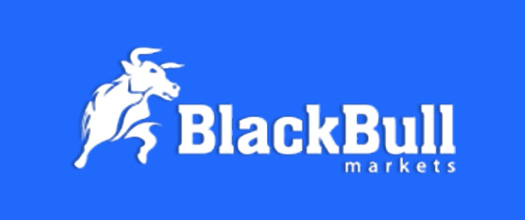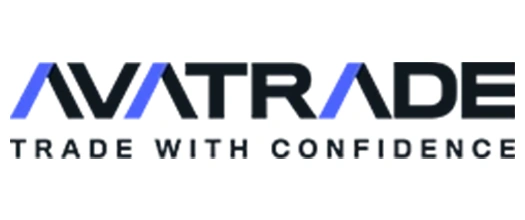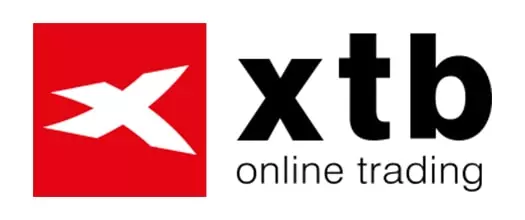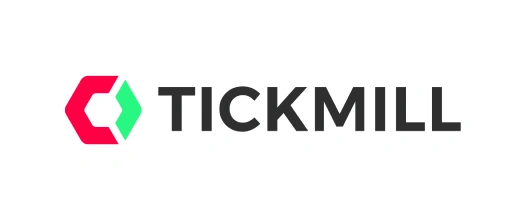- Jump to:
- Main features of the best Kuwait Forex brokers
- Forex Brokers in Kuwait Compared by Spread
- Account Types and Commissions
- Forex Legislation
- Financial Regulators
- Payment Methods
- Trading Software
- Mobile Trading
- FAQ
Our team of expert traders tested many regulated and trustworthy forex brokers that accept traders from Kuwait and compiled a toplist with the best among them. Each broker operating in Kuwait received a quality score based on several factors, including Trustpilot rating, regulation, fees and commissions, available trading platforms, customer service and more.
 Fusion Markets74-89% of retail CFD accounts lose money
Fusion Markets74-89% of retail CFD accounts lose money AxiThe vast majority of retail client accounts lose money
AxiThe vast majority of retail client accounts lose money FP Markets73.85% of retail investor accounts lose money
FP Markets73.85% of retail investor accounts lose money Pepperstone75.5% of retail investor accounts lose money
Pepperstone75.5% of retail investor accounts lose money Global Prime74-89% of retail CFD accounts lose money
Global Prime74-89% of retail CFD accounts lose money XM Group72.82% of retail investor accounts lose money
XM Group72.82% of retail investor accounts lose money
Below you can find a comprehensive comparison table of forex brokers that allow Islamic accounts for traders in Kuwait. We rank them based on several factors including: regulation, spreads and commissions, Trustpilot rating, trading instruments, trading platforms, deposit and withdrawal methods.
Main features of the best Kuwait Forex brokers
- Min Deposit$0Trading InstrumentsForex, Commodities, Indices, Crypto, US StocksRegulatorsASIC, FSA (Seychelles), VFSC (Vanuatu)Trading PlatformsMetaTrader4, MetaTrader5, cTrader, DupliTrade, Fusion+ Copy Trade, TradingViewSpread0.9 pips Classic; 0.0 pips ZeroLeverage1:30 (1:500 for forex and metals via VFSC)Deposit MethodsVisa, Mastercard, PayPal, Skrill, Neteller, Fasapay, Jeton Wallet, Perfect Money, Online Naira, Doku, Bitcoin, Ethereum, Litecoin, USDT, Tether, Ripple, bank wire, ZotaPay, VNPay, DuitNow, XPay, DragonPay, VAPay, FasaPay, AstroPay, PayID, Jetonbank, Sticpay, Interac, LuqaPay, Zotapay, MiFinityWithdrawal MethodsVisa, Mastercard, Bank Wire, Skrill, Neteller,Bitcoin, Ethereum, Litecoin, Tether, Ripple, MiFinity, Interac, PayPal, AstroPay, Jetonbank, DragonPay74-89% of retail CFD accounts lose money
Fusion Markets is a globally renowned online trading platform accepting customers from Kuwait. Traders can benefit from rising and falling prices of 90+ currency pairs, including popular choices such as EUR/USD, GBP/USD, and USD/JPY. The brand offers several account types: Zero (spreads from 0.0 pips+$4.5 commission per round turn), Classic (spreads from 0.9 pips+$0 commission), and Demo (loaded with virtual money). Swap Free accounts offer minimum spreads for EUR/USD from 1.4 pips, $0 commission, and admin charge time only once every 7 days per position.
- Min Deposit$50 (AU$100)Trading InstrumentsForex CFDs, Shares CFDs, Metals CFDs, Commodities CFDs, Indices CFDs, Crypto CFDs, ETF CFDsRegulatorsASIC, CySEC, FSA (Seychelles), FSCA, FSA (St. Vincent and the Grenadines)Trading PlatformsMetaTrader4, MetaTrader5, WebTrader, IRESS, cTrader, TradingViewSpread1.0 pips Standard; 0.0 pips RawLeverage1:30Deposit MethodsVisa, Mastercard, Neteller, Bank Transfer, Skill, Sticpay, Fasapay, Virtual Pay, Perfect Money, Pagsmile, Dragonpay, Crypto, Apple Pay, Google Pay, Online Banking, Broker to Broker, PayPal, XPay, RapydWithdrawal MethodsVisa, Mastercard, Bank Wire, Neteller, Skrill, Paytrust88, PayPal73.85% of retail investor accounts lose money
FP Markets is an excellent choice for Kuwaiti traders, as the broker supports Arabic, offers 60+ Forex pairs, and favorable trading conditions ($0 commission and spreads from 1.0 pips for Standard accounts and $6 commission per round turn and spreads from 0.0 pips for Raw accounts). The average spreads for the GBP/USD pair start from 1.4 for Standard account holders and 0.3 for Raw account holders. MT4, MT5, cTrader, and TradingView are among the supported trading platforms.
- Min Deposit$0Trading InstrumentsForex, Indices, Commodities, Cryptocurrencies, Share CFDs, ETFsRegulatorsUK FCA (No.684312), CySEC (No. 388/20), ASIC (No. 414530), BaFin (No.151148), DFSA, CMA, SCB (Bahamas)Trading PlatformsTradingView, MT5, MT4, cTraderSpreadFrom 0.0 pips (Razor Accounts), 1 pip (Standard Accounts)Leverage1:30Deposit MethodsVisa, Mastercard, PayPal, Bank Transfer, BPay, Neteller, SkrillWithdrawal MethodsVisa, Mastercard, PayPal, Bank Transfer, BPay, Neteller, Skrill75.5% of retail investor accounts lose money
Pepperstone is among the top Kuwait Forex brokers, with favorable conditions for swap-free Islamic accounts designed for traders who cannot pay or receive swaps. The average spreads for the EUR/USD pair start from 0.77 pips, $0 commission, and minimum trade sizes from 0.01 lots. While there is no account opening balance requirement, the broker recommends €500 or a currency equivalent. The supported account base currencies include AUD, EUR, GBP, and USD. The broker allows scalping, EAs, and hedging. For positions held for more than 5 days with this account, traders will be charged an admin charge.
- Min Deposit$0Trading InstrumentsForex, Cryptocurrencies, Indices, Commodities, BondsRegulatorsASIC (No. 385620), VFSC (No. 40256)Trading PlatformsMT4 Desktop, MT4 Webtrader, MT4 AndroidSpread0.9 pips Standard, 0.0 pips RawLeverage1:500 (1:30 for ASIC entity)Deposit MethodsVisa, Mastercard, PayPal, Skrill, Neteller, Gate8, Dragonpay, Fasapay, VNPay, Pagsmile, BPay, POLi, AstroPay, Bank Transfer, Interac, Perfect Money, PayID, Jeton, MiFinity, XPay, CryptoWithdrawal Methods
Mastercard, Visa, Local Bank Transfer, Bank Wire Transfer, Skrill, Neteller, AstroPay, PayPal, Dragonpay, Perfect Money, Jeton, Interac, Cryptocurrencies
74-89% of retail CFD accounts lose moneyGlobal Prime, a VFSC-regulated broker, offers top-rated services to traders residing in Kuwait. The company provides two options for account types – Standard and Raw, designed to suit different preferences. The base account currencies for both options include USD, AUD, GBP, EUR, CAD, SGD, and JPY. Raw account holders will benefit from minimum spreads of 0.0 pips on the major currency pair GBP/USD, whereas the average values start from around 0.22 pips. The commission charged per lot traded per side amounts to $3.50. As for Standard account holders, they will pay no commission, but a 0.9 mark-up will be added to the typical Raw spread value for the GBP/USD pair.
- Min Deposit$5Trading InstrumentsForex, Stocks, Indices, Commodities, Thematic IndicesRegulators(ASIC) (ref. No. 443670), FSC (license no. 000261/397), DFSA (ref. no. F003484), CySEC (license no. 120/10), CFTC; Registrations for EU passporting: - BaFin, CNMV, MNB, CONSOB, ACPR, FIN-FSA (Finland), KNF, AFM, FSA (Sweden)Trading PlatformsMetaTrader 4 and 5, MetaTrader 4 and 5 on mobile, MT4 WebTrader, MT5 WebTrader, MT4 MultiterminalSpreadFrom 0.0 pips (Zero Account), 0.6 pips (Standard and Micro Accounts)Leverage1:30Deposit MethodsVisa, Mastercard. Skrill, Bank Transfer, Neteller, Apple Pay, Google Pay, UnionPay, MaestroWithdrawal MethodsVisa, Mastercard, China Union Pay, Skrill, Neteller, Bank Transfer72.82% of retail investor accounts lose money
XM welcomes Forex traders from Kuwait, offering 55+ currency pairs, deposit minimums of just $5, and several advanced platforms, including MT4, MT5, and the XM app. The brand has three trading account types, Micro, Standard, and XM Ultra Low. At XM, Kuwaiti traders can choose the swap-free option with any of these accounts. Negative balance protection is available for all three account types and hedging is available on the MT5 platform.
- Min Deposit$0 (Standard)$2,000 (Prime)$20,000 (Institutional)Trading InstrumentsForex, Commodities, Futures, Indices, Stocks, CryptocurrenciesRegulatorsSFSA (No. SD045), FMA (No. FSP403326), FSATrading PlatformsMT4, MT5, TradingView, cTrader, MT WebTrader, BlackBull Shares, BlackBull CopyTrader, BlackBull Trade, BlackBull Invest, ZuluTradeSpread0.8 pips Standard; 0.1 pips Prime; 0.0 pips InstitutionalLeverage1:500Deposit MethodsVisa, Mastercard, Neteller, Airtm, Skrill, Bank Transfer, HexoPay, American Express, POLi, Payment Asia, Help2Pay, FXPay, Fasapay, China Union Pay, Boleto, AstroPay, Beeteller, Bitcoin, Ethereum, Tether, Ripple, Litecoin, Bitcoin Cash, Chainlink, USD Coin, StellarWithdrawal MethodsVisa, Mastercard, Bank Transfer, Airtm, Skrill, Neteller, American Express, POLi, HexoPay, Payment Asia, Help2Pay, FXPay, China Union Pay, Boleto, Fasapay, Beeteller, AstroPay, Bitcoin, Litecoin, Bitcoin Cash, Tether, Ripple, Stellar, Chainlink, Ethereum, USD Coin
BlackBull Markets greets traders from Kuwait with $0 minimum deposit requirements, 26,000+ tradable instruments, and lightning-fast execution speeds. 70+ major, minor, and exotic Forex pairs are available for trading on several platforms, including TradingView, MT4, MT5, cTrader, and BlackBull’s proprietary BlackBull CopyTrader and BlackBull Invest. Three account types are on offer – ECN standard (spreads from 0.8 pips and $0 commission), ECN Prime (spreads from 0.1 and $6 commission per round turn), and ECN Institutional (spreads from 0.0 pips and $4 commission per round turn).
- Min Deposit$100Trading InstrumentsForex, Major stock indices, Cryptocurrencies, Commodities, Bonds, Individual Shares, ETFsRegulatorsFFAJ (License No.1574),CySEC (No. 347/17) ISA (No. 514666577), IIROC, ADGM / FSRA (No.190018), CBI (No.C53877), BVIFSC (No. SIBA/L/13/1049), FSCA(No.45984), ASIC (No.406684), JFSA (No. 1662)Trading PlatformsMetaTrader4, MetaTrader5, WebTrader, AvaTadeGO, AvaSocial, AvaOptions, DupliTradeSpreadFrom 0.9 pips (retail), 0.6 pips (pro)Leverage1:30Deposit MethodsVisa, Mastercard, Skrill, WebMoney, Neteller, bank wireWithdrawal MethodsVisa, Mastercard, Skrill, WebMoney, Neteller, bank wire76% of retail investor accounts lose money
Kuwait traders looking to profit from the Forex market can set up accounts with AvaTrade, a broker, regulated across 9 jurisdictions. The company has waived commissions for all asset classes, including currency pairs. Retail traders will be able to trade the EUR/USD pair with spreads starting from 0.9 pips, whereas professionals will enjoy lower spreads of 0.6 pips. Leverage is capped at either 1:30 or 1:20, depending on the currency pair traded. The exclusive risk management tool, AvaProtect™, is available for Forex too, enabling traders to protect their trades against losses for a predetermined duration.
- Min Deposit$100Trading InstrumentsRegulatorsCySEC (license no. 079/07), ASIC (license no. 246566), FSA (license no. SD056), and FSC (license no. SIBA/L/20/1135).Trading PlatformseasyMarkets, MetaTrader 4, MetaTrader 5, TradingViewSpreadLeverage1:30Deposit MethodsVisa, Mastercard, JCB, Amex, Skrill, Neteller, Fasapay, Sofort, iDEAL, Web Money, BPay, Bank TransferWithdrawal MethodsVisa, Mastercard, JCB, Amex, Skrill, Neteller, Fasapay, Sofort, iDEAL, Web Money, BPay, Bank Transfer71% of retail investor accounts lose money
easyMarkets is an attractive avenue for Kuwaiti traders looking for a reliable online Forex broker. Here, traders will find 60+ currency pairs, with all the 7 major pairs, making up 85% of forex market transactions. The fixed spreads for the EUR/USD pair are 0.8 pips (easyMarkets Web / App & TradingView), 0.7 (MT4), and 0.7 (MT5). The broker supports several convenient and useful tools, including the EasyTrade tool, Freeze Rate, and Deal Cancellation. Negative Balance Protection and free guaranteed stop loss are available too.
- Min Deposit$250Trading InstrumentsForex, Stocks, Indices, Commodities, ETFs, Indices, CryptocurrenciesRegulatorsFCA (License No. FRN 522157), CySEC (License No.169/12), FSC (FSC License No.: 000302/438), IFSC (License No.: 000302/46.), KNF (N/A), CNMV (N/A), BaFin (registered), FSCA (N/A), FSA Norway (registration ID - FT00118162)Trading PlatformsxStation 5, xStation MobileSpreadFrom 0.1 pips (Pro Account), 0.5 pips (Standard Account)Leverage1:30Deposit MethodsVisa, Maestro, Mastercard, Bank Transfer, Neteller, Skrill, PayPal, Ecommpay, PayUWithdrawal MethodsBank Transfers, Visa, Mastercard, Skrill80% of retail investor accounts lose money
Regulated by multiple financial authorities, including the DFSA, XTB is a reputable broker accepting customers from Kuwait. With 20+ years on the market, 4,500 instruments, and 130+ leveraged CFD products, the brand has a lot to offer. EUR/USD trades start from 0.9 pips and with all trading surcharges built into the spread, the broker does not charge commissions. Spreads for AUD/USD start from 0.13 pips, and those for GBP/USD – from 0.14 pips. Dedicated support in Arabic is available via phone, email, and live chat.
- Min Deposit$100Trading InstrumentsForex, CFD's on Stock, CFD's on IndicesRegulatorsCySEC (No. 278/15), FCA (733772), CONSOB (No.4310), BaFin (No.146511), ACPR (No.75473), CNVM (No.4082), FSA Seychelles (SD 008), FSCA (FSP 49464), DFSA (F007663)Trading PlatformsMT4, MT5, WebTrader, ZuluTradeSpreadFrom 0.0 pips (Raw Account), 1.6 pips (Classic Account)Leverage1:30Deposit MethodsBank Transfer, Skrill, Mastercard, Visa, PayPal, Przelewy24, Neteller, TrustlyWithdrawal MethodsMastercard, Visa, Skrill, Neteller, Przelewy24, PayPal, Bank Transfer70% of retail investor accounts lose money
Tickmill enables Kuwaiti traders to profit from 60+ Forex Markets and a choice between several advanced platforms, including MT4, MT5, WebTrader, and ZluTrade. Whether you opt for the Classic or Raw account will depend on your trading preferences, with the first charging no commission and the second charging a commission of $3 per side. Muslim traders can open Classic or Raw accounts with a swap-free option, which is compliant with the Sharia law. Besides English, the website is supported in 14 other languages, including Arabic.
Forex Brokers in Kuwait Compared by Spread
| Broker | EUR/USD | USD/JPY | GBP/USD | USD/CHF | AUD/USD | EUR/GBP | USD/CAD |
|---|---|---|---|---|---|---|---|
| 1. Fusion Markets | 0.07 | 0.13 | 1.01 | 0.37 | 0.90 | 0.23 | 0.14 |
| 2. BlackBull Markets | 0.1 | 0.2 | 0.4 | 0.9 | 0.4 | 0.7 | 0.5 |
| 3. Tickmill | 0.1 | 0.1 | 0.3 | 0.4 | 0.1 | 0.4 | 0.2 |
| 4. Global Prime | 0.13 | 0.28 | 1.11 | 0.34 | 0.07 | 0.28 | 0.26 |
| 5. easyMarkets | 0.7 | 1.0 | 0.9 | 1.5 | 1.2 | 1.0 | 2.3 |
| 6. XM Group | 0.8 | 0.9 | 0.9 | 2.1 | 0.75 | 1.5 | 2.4 |
| 7. AvaTrade | 0.9 | 1.3 | 1.3 | 1.3 | 1.1 | 1.2 | 1.8 |
| 8. XTB | 0.9 | 14 | 2.2 | 1.2 | 1.1 | 1.3 | 1.5 |
| 9. Pepperstone | 1.00 (min) | 1.0 | 1.00 (min) | 1.1 | 1.2 | 1.2 | 1.42 |
| 10. FP Markets | 1.1 | 0.30 | 1.2 | 1.8 | 1.2 | 0.20 | 1.5 |
Account Types and Commissions
| Broker | Min Deposit | Account Types | Commission per Lot | Trustpilot Rating |
|---|---|---|---|---|
| 1. Fusion Markets | $0 | Zero, Classic, Islamic, Demo, Professional | $0 Classic Account, $4.50 round turn on Zero Account | 4.9 |
| 2. FP Markets | $50 (AU$100) | Standard, Raw, Demo, Professional, Islamic | $0 Standard Account; $6 round turn on Pro Account | 4.7 |
| 3. Pepperstone | $0 | Standard Account, Razor Account | $0 (Standard Account), $7 round-turn (Razor Account) | 4.6 |
| 4. Global Prime | $0 | Standard, Raw, Demo, Professional, Islamic | $0 Standard Accounts; $7 round turn on Raw Accounts | 4.5 |
| 5. BlackBull Markets | $0 (Standard)$2,000 (Prime)$20,000 (Institutional) | ECN Standard, ECN Prime, ECN Institutional | $0 Standard; $6 per lot Prime; $4 per lot Institutional | 4.5 |
| 6. easyMarkets | $100 | Web/App VIP, Premium, and Standard; MT4 VIP, Premium, and Standard, MT5 | $0 | 4.5 |
| 7. AvaTrade | $100 | Retail, Professional, Islamic, MAM | $0 | 4.4 |
| 8. XTB | $250 | Standard, Pro, and Islamic Accounts | $0 | 3.7 |
| 9. Tickmill | $100 | $0 on Classic Account; $3 per side on Raw Account | 3.7 | |
| 10. XM Group | $5 | Ultra Low Micro, Ultra Low Standard, XM Zero | $0 Ultra Low Micro and Ultra Low Standard Accounts; $3.50 per side XM Zero Account | 2.9 |
Kuwait may be a small, Islamic state located on the tip of the Persian Gulf, but it is also one of the richest countries in the world. Although its economy is based primarily on petroleum, it also has a well-developed financial sector. Trading on the foreign exchange market is a perfectly legal activity and due to the loose regulation on traders, it is extremely popular among locals.
And locals are quite well-off people who see the Forex market as one of the most attractive ways to invest their money. To understand the specifics of the Forex industry in Kuwait, we need to take into account a few essential facts about this country. It has a population of around 4.6 million people but most of them, around 3.2 million, are expatriates who arrive in the country for better job opportunities. Kuwaitis, on the other hand, although being a minority, are cared for by the state and are among the wealthiest people in the world.
With a GDP per capita of $69,669, Kuwait is the world’s 8th richest country, according to 2018 estimates. Moreover, the Kuwaiti dinar may not be traded on the Forex market but it is the highest-valued unit of currency in the world. Traders in the country prefer major pairs such as EUR/USD, GBP/USD, and AUD/USD.
Kuwait Forex Legislation
Kuwait is an Islamic state but unlike other GCC countries (Gulf Cooperation Council), it largely follows a civil law system, while Sharia law governs family law and it applies only to Muslim residents. As a result, it does not pose the same severe restrictions on financial services as other Islamic countries. There are, of course, Islamic banks in Kuwait but there are also conventional banks, as well. Moreover, traders can take advantage of the regular trading accounts offered by Forex brokers rather than sticking to only Islamic accounts.
Brokers in Kuwait offer Islamic accounts to religious Muslims. Islamic accounts, also known as swap-free accounts, have no rollover interest on overnight positions to comply with the Muslim faith. However, holders of Islamic trading accounts may be charged other fees and commissions. Of course, before registering at an online Forex broker, traders need to make sure they understand the local law and take Kuwait’s financial legislation into account. Moreover, they should open an account only with a licensed broker that is regulated in the country. This may be a local brokerage firm or a foreign company that needs to register as a financial and monetary intermediary in the country.
The current legislation requires all offshore brokers to be licensed and authorized in the countries they are based in, however. This is why many of the online Forex brokers available in Kuwait also hold licensed from the FCA in the UK, CySEK in Cyprus, Australia’s ASIC, etc. Overall, the requirements and regulations brokers need to comply with are very similar to those across Europe, Australia, and the United States.
Although the local regulatory bodies seem very liberal, they do impose severe penalties on those who have been found in violation of any law or code of conduct. Illegal and unethical practices such as financial fraud, various scams, insider trading, etc., are penalized and often, Government authorities may get involved in the more serious cases.
Along with Forex, brokers in Kuwait usually offer their clients a variety of other financial instruments, including futures and CFDs. These are financial derivatives that allow investors to trade on the price movements of different assets without actually owning them. This could be currency pairs, indices, commodities, energy products, equities, and more. Usually, brokers in Kuwait offer their clients leverage up to 100:1 – there is no restriction on the leverage that can be used by traders in the country.
Kuwait’s Financial Regulators
There are several authorities in Kuwait that are responsible for the monitoring and regulation of the financial sector and the financial markets, in particular. Brokers that offer their services in the country are licensed and regulated by the Ministry of Commerce and Industry. Another important body that controls the sector is the Kuwait Chamber of Commerce and Industry (KCCI).
The main regulatory body, however, is the Central Bank of Kuwait, which was established in 1969. It issues the national currency on behalf of the state and serves as a banker to the Kuwaiti government. It is responsible for determining the financial and credit policy of the country and for maintaining the dinar stable and convertible to other currencies. However, the Central Bank also has a large number of supervisory functions.
The bank is responsible for supervising the entire financial sector in the country. It researches and analyzes all new entrants, including foreign Forex brokers, who wish to operate in Kuwait. The bank also conducts inspections of all regulated bodies and companies.
Kuwait Forex Payment Methods
The vast majority of Forex brokers available in Kuwait process payments through traditional bank transfers and credit cards. Traders in the country can also use plenty of other options when making a deposit or withdrawal from their trading account. These include e-wallets such as PayPal, Neteller, Skrill, although digital wallets have not yet become very popular in Kuwait.
Another great alternative is using the prepaid solutions by Paysafe, including the Paysafecard, which launched in 2015 in Kuwait. Still, local investors prefer more traditional payment options since practically everyone has a banking account and a card linked to it. It is hardly a surprise, then, that the most popular payment method in Kuwait remains the debit card.
Local traders have access to a wide variety of cards, including Mastercard and Visa-branded cards. Most of them, however, have KNET cards. KNET is a Kuwaiti payment service and gateway by the Shared Electronic Banking Services Company (K.S.C.C.), a company established in 1992 by eight Kuwaiti banks. The idea was to connect all banking systems in the country to provide clients with faster, more secure and more efficient payments.
Today, most Kuwaiti residents have KNET debit cards (credit cards are also available but less popular) and they can be used for digital and in-store payments almost anywhere in the country. Kuwaiti Forex brokers also accept KNET payments. Traders should also consider the currencies available at the broker’s website – allowing Kuwaiti dinars as a base account currency is an obvious advantage.
Popular Trading Software in Kuwait
There are dozens of options when it comes to the different types and brands of trading software available. Often, traders struggle to choose a trading platform simply because they all look too similar to them. Indeed, nowadays, trading platforms are more or less standardized. What Forex traders should look for, however, is whether the software they are reviewing offers Forex trading at all.
Some platforms have been designed to offer traders analysis and access to the stock exchanges where the trade is quite different from the foreign exchange market. Forex is a global and decentralized market and trading occurs 24 hours a day at hundreds of brokers’ websites – to access it, retail traders need to use a specific type of software. Often, the difference between long-term success and failure in trading depends on the effectiveness and overall performance of the platform.
Good trading platforms provide fast, real-time execution of orders, great charting tools, market analysis, and educational features. Moreover, they give clients access to economic news, expert advice, and various professional functions. Traders in Kuwait, in particular, should look for software available in Arabic – Islamic accounts are, of course, mandatory.
The most popular platform for trading Forex, MetaTrader 4, is also available to Kuwaiti investors. It can be opened in the Arabic language, although many local traders will also be comfortable with the English version, too. The key advantage of MT 4, as it is also known, is its user-friendliness – it is perfectly suitable to novices and it offers a wide variety of technical indicators, automated trading, extensive tutorials, and customization options. Of course, MT 4 and MT5, which is targeted towards stock traders, are available for mobiles.
Other platforms, suitable for Forex are cTrader, ZuluTrade, and NinjaTrader. One of the very few Arabic platforms, on the other hand, is the Dubai-based AX1. It is offered by several Kuwaiti brokers and supports mobile trading, as well.
Mobile Trading in Kuwait
As one of the wealthiest countries in the world, Kuwait focuses on the development and implementation of modern technologies. Mobile technologies, in particular, have slipped into every aspect of Kuwaitis’ life and business. The country has one of the highest mobile penetration rates in the world – everyone has a smartphone, while 4G networks are available 88.4% of the time. Moreover, Kuwaitis now prefer to do most of their shopping and browsing directly from their phones – the Government is also offering mobile versions of various services.
Of course, most traders in Kuwait also tend to open their trading accounts from their mobile device, whether that is an iPhone, an iPad, or an Android device. More importantly, the vast majority of Forex brokers in the country also offer mobile trading through native apps, developed especially for their offering. These apps can be downloaded for free directly from the broker’s website or from Apple’s App Store or Google Play. Once again, traders should look for apps available in Arabic and offering Islamic accounts.
It should be noted, however, that Kuwait still has not built modern infrastructure to provide its residents with fast Internet. There are four major service providers that pay to use the fixed-line broadband infrastructure of the Ministry of Communication, which is quite slow. This slow connection, however, is usually the base of the newer 4G and 5G networks. As you can probably guess, these mobile connections are also quite slow.










